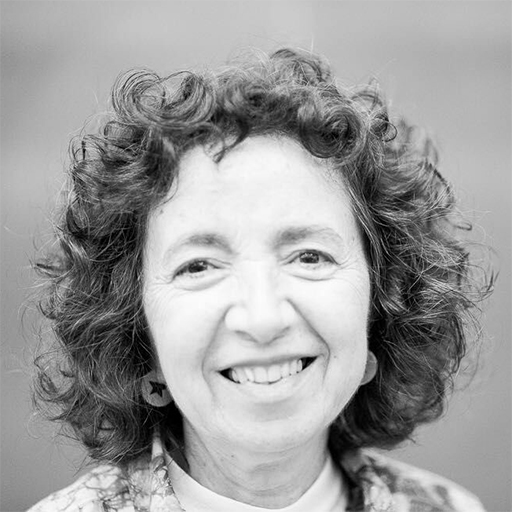 Marilar Jiménez-Aleixandre
Marilar Jiménez-Aleixandre
Ad Honorem Professor of Science Education
Universidade de Santiago de Compostela, Spain
Maria Pilar Jiménez-Aleixandre is Ad Honorem Professor of science education in the Universidade de Santiago de Compostela, Spain. Her research program has explored the development of argumentation and critical thinking in the science classroom. Author of highly cited publications, her h Index is 44. She has received awards in the field, as the NARST Distinguished Contribution to Science Education through Research Award, in 2019, and has delivered invited talks in about 50 international events. She serves on the board of Science Education and other WoS journals. In 2022, she co-edited with Blanca Puig the volume Critical thinking in biology and environmental education: Facing challenges in a post-truth world (Springer).
Keynote Presentation by Marilar Jiménez-Aleixandre
Developing Critical Thinking through Socio-scientific Issues to Face Post-truth Challenges
My proposal is to support students' development of Critical Thinking (CT) in science education as a response to post-truth challenges, and I suggest doing so through work with socio-scientific issues. The practice of critical thinking assists students in fulfilling goals such as using appropriate criteria to evaluate information, distinguishing truth from post-truth and science from pseudoscience, and making decisions grounded in evidence and values. The proposal is framed in an approach to critical thinking oriented to action, towards educating critical citizens; a characterization of critical thinking (Jiménez-Aleixandre & Puig, 2022), which includes new components: a) the capacity to criticize inequitable discourses and structures, and to engage in critical action; and b) the capacity to develop independent opinions and to challenge socially established ideas; alongside c) the use of epistemic criteria in evidence evaluation; and d) the disposition to seek reasons and to evaluate the reliability of sources. The post-truth era (McIntyre, 2018) involves large scale diffusion of science denial and pseudo-scientific claims, sometimes endorsed by political leaders; thus, CT's dimension of purposeful judgment is relevant to judgments about post-truth. In this talk I address first, the shifts involved in our characterization of CT, from a focus on skills to a focus on practice; and from a narrower focus on cognitive skills to a wider focus including justice and critical action. We suggest that overcoming post-truth is linked to social justice. Second, I discuss three instances of post-truth about socio-scientific issues: global warming denial, racism –or the idea that everything is written in our genes– and denial of women's discrimination. My contention is that we need to hold up hope, against discourses from enterprises and capitalist forces that propagate the idea that nothing can be done to reverse climate change or racism: the future is in our hands.
Post-conference Workshop by Marilar Jiménez-Aleixandre
Embedding Conflict in Task Design to Promote Critical Thinking
To face post-truth challenges, I propose –as one of educational strategies– the development of Critical Thinking (CT). The focus of the workshop is on the features of task –and teaching sequences– design that promote critical thinking and argumentation. I suggest that there is a need for revealing conflicts at the heart of socio-scientific issues (Jiménez-Aleixandre et al., 2019). My standpoint is that to face post-truth challenges it is necessary to acknowledge the inherent complexity of issues such as global warming –I prefer that term over climate change– racism or sexism. Building public discourses against denial and taking actions to stop global warming involve conflicts, both social –within structural dimensions of the issue– and personal –as with lifestyle. Thus, for instance, the benefits of reducing the meat in diets prevalent in Western countries, for the environment –greenhouse effect–, animal welfare and human health may conflict with economic interests and with cultural habits and values. Changing diets could also entail personal conflicts.
The approach draws from Barzilai and Chinn's (2020) work about educational responses to post-truth, in particular three of their educational lenses to address it: 1) Not knowing how to know, how to critically deal with information; 2) Fallible ways of knowing, cognitive biases and limitations; and 3) Disagreeing about how to know, a loss of shared epistemology.
The objectives of the workshop are:
– To discuss the meaning of post-truth, in terms of threats to students' and public's capacity to engage in knowledge evaluation, and its impact on science education.
– To engage in two embedding-conflict tasks, about global warming, and racism, designed to promote critical thinking and the use of appropriate criteria to evaluate information.
– To identify, in the participants' contexts, scientific issues that may be used as topics for building embedding-conflict tasks.
A relevant study: https://www.science.org/doi/10.1126/science.adi8227
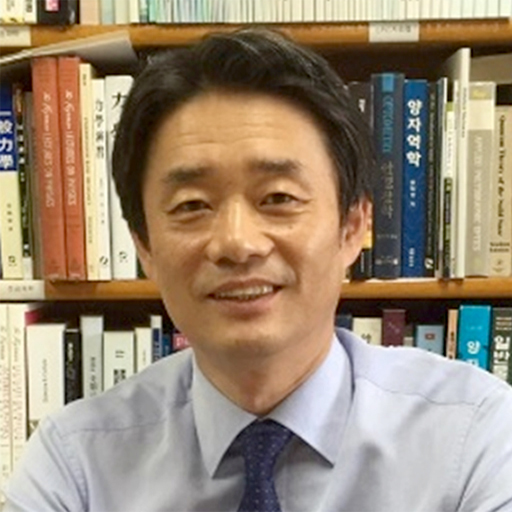 Jinwoong Song
Jinwoong Song
Professor of Physics Education
Seoul National University, South Korea
Jinwoong Song is a professor of physics education at Seoul National University (SNU), the director of SNU Teacher Education Innovation Center (TEIC), and a fellow of the Korean Academy of Science and Technology (KAST). He received his BSc in physics and MEd in science education from SNU, and his PhD in science education from King’s College London in 1990. He has been actively engaged with international collaborations for establishing EASE (East-Asian Association for Science Education) as its 2nd president and APSE (Asia-Pacific Science Education) journal as its 1st editor-in-chief. Along with his life-long work with Korean Association for Science Education (KASE), he has served for several national-level policy making for the innovations of Korean science education, including Science Core Schools, 2015 National Science Curriculum, and Korean Science Education Standards (KSES). With ongoing academic interests in the interplay between science education and HPS (the history and philosophy of science), his current research interests cover science curriculum, the nature of science / physics, East Asian science classroom culture, science classroom creativity, science as wisdom, and the history and philosophy of science education.
Keynote Presentation by Jinwoong Song
Science and Pseudoscience: Why Do People Trust them?
One of the biggest issues of the posthuman era is trust. The boundary between the real and the fake is unclear, and the unpredictability in a complex network system often leads to disaster. Ultimately, these come down to the question of how we can and cannot trust science. One of the goals of science education has been to help people trust the knowledge structure and inquiry activities of science. However, modern people sometimes have skepticism over the way how science works and often rely more on something other than science. This presentation will examine the reasons why people do and do not trust science and pseudoscience, by expanding the discussion over the results of a previous study on why Korean adults with a fairly high level of education came to trust things that fall outside the scope of orthodox science, such as acupuncture and the four pillars of destiny (FPD) (Song, Chun, & Na, 2021). The data and the discussion are deeply connected to the cores of science education: the uncertain nature of science, the demarcation between science and non-science, nature of science, conspiracy theories and science denials, and further the boundaries of science education. In a future society increasingly dominated by AI, the issue of science and trust will become more serious and may demand a fundamental change of our concepts of trust as well as of science.
Post-conference Workshop by Jinwoong Song
(Un)certainty of science: what and how should we deal with it?
In the 21st century, we live in a risk society and the trust in science is being challenged. The belief that science will provide accurate future predictions or the definitive solutions of problems has been shaken, and people's expectations are now shifting to artificial intelligence (AI). In fact, this widespread public disappointment with science stems from a misunderstanding of the (un)certainty of science. In school education, we have placed too much emphasis on the certainty of science. While there was a strong emphasis on the usefulness of established scientific knowledge for known problems, it was less honest about the uncertainty inherent in the process of scientific inquiry into new problems. The core of trust must lie in the 'certain uncertainty of science.' In other words, although science cannot provide definite answers to new and unknown problems, it must be understood that scientific practice has an efficient system in place to minimize the intrinsic uncertainty. And it is necessary to emphasize that this is the most important core of science and the basis of trust. In this workshop, we will discuss (1) how science curriculum and science textbooks deal with (un)certainty in science, (2) what (un)certainties are in scientific knowledge and inquiry processes, and (3) how to deal with such (un)certainty preferably. The workshop participants are expected to share their experiences and opinions as science educators.
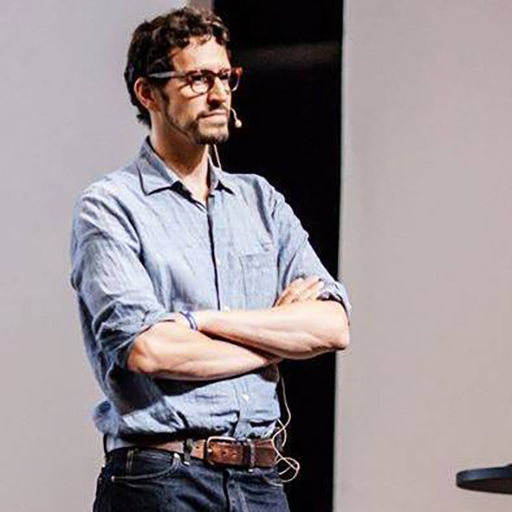 Noah Weeth Feinstein
Noah Weeth Feinstein
Professor
University of Wisconsin-Madison, USA
Noah Weeth Feinstein is Professor of Curriculum & Instruction and Community & Environmental Sociology at the University of Wisconsin-Madison. He studies how people make sense of science in their personal, social, and political lives, and how educational platform such as schools and museums can help. Professor Weeth Feinstein is best known for his work on the competent outsider approach to science literacy, which has appeared in venues such as Science, Science Education, and Public Understanding of Science, as well as the U.S. National Academies consensus report on science literacy. Professor Weeth Feinstein also writes about environmental and sustainability education, public knowledge, and racial equity in science museums, and has become increasingly interested in the role of education in climate change adaptation. His recent work on educational responses to the post-truth era has been featured in Educational Theory and Educational Psychologist.
Keynote Presentation by Noah Weeth Feinstein
Science education and the richness of human social life
Many of the most common responses to misinformation and the post-truth era are built on misunderstandings about the social and institutional nature of scientific work and the social conditions under which non-scientists make sense of science. This presentation explores how understanding the richly social nature of scientific work – and human life more generally – might help us develop science education strategies that support the fruitful integration of science into complex and plural societies. The core of the talk focuses on three ideas: competent outsiders, epistemic networks, and appropriate respect. Each idea responds to broad assumptions in science education: the assumption that “thinking like scientists” is useful outside of scientific practice, the assumption that people do (or should) try to make sense of science on their own, and the assumption that “trust in science” is a simple and unambiguous good. Drawing on theories and findings from sociology and the interdisciplinary field of Science and Technology Studies, I argue that public engagement with science plays out in a social world that is full of alliances, commitments, and connections, populated by organizations and institutions as well as people and ideas. Although it seems improvised in the moment, public engagement with science is informed by histories and experiences that we cannot (and should not) ignore.
Post-conference Workshop by Noah Weeth Feinstein
Science education and the richness of human social life: Exploring the implications for teaching
In this workshop, we will draw on the knowledge and contexts of workshop participants to examine how richly social understandings of science and human life can alter our approach to science education. The overall goal is to shift our frame of reference away from the canonical goals of science education and toward the complex, richly social work of public engagement with science.
First, we will establish a common conceptual foundation by examining our own experiences as competent outsiders in different cultural contexts during the global COVID-19 pandemic. We will map our own encounters with science onto the science curricula in our various teaching contexts and evaluate where familiar forms of science education do and do not prepare us for authentic public engagement.
Second, we will use concrete problem situations (some pre-determined, some from our shared experience) to examine how people use epistemic networks to find, interpret, and act on science-related knowledge in personal and civic contexts. We will contrast these problem situations (and the socially varied strategies we use to address them) with the narrower, more individualistic problem situations that characterize school-based science education and examine how and when it is possible to encourage prudent use of epistemic networks within school-based science education.
Third and finally, we will explore what it means to have appropriate respect for science. This will require us to examine the institutional, political, and historical contexts that shape how different people encounter science, and contrast the clear, unambiguous answers that characterize school-based science with the messy, ambivalent, “good enough” compromises we are often forced to make in life outside of school. We will conclude by considering how and when it is possible to introduce a more nuanced and relational idea of respect for science in school.
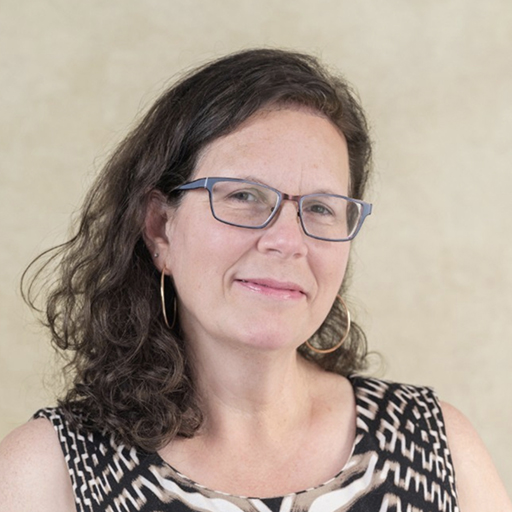 Hannah Sevian
Hannah Sevian
Professor of Chemistry
University of Massachusetts Boston, USA
Hannah Sevian is a professor of chemistry at the University of Massachusetts Boston in the United States, where she has been on the faculty since 2001. Her early training was in chemical engineering, theoretical chemical physics, and experimental materials science. Since 2001, she transitioned scholarly expertise to the domain of chemistry education research and institutional service to professional development in support of STEM teaching and learning. Her research focuses on chemistry learning that is proactively inclusive, recognizes and builds on students’ cultural assets, and creates opportunities for learning so that students take an active role in connecting school to their lived worlds. To enact this, she works on designing, implementing, and evaluating curricular reforms, building professional development programs for STEM faculty around inclusive teaching and learning, leading institutional and cultural change at the university, and strengthening connections with the community in which the university is situated. Her work is published in chemistry, chemistry education, and science education venues, and is largely funded by the US National Science Foundation.
Keynote Presentation by Hannah Sevian
Tools for Educating in Science to Mitigate Harm in the Post-Truth Era
The burgeoning of untruth, especially in science, is directly related to our limited capacity as humans to understand, regulate, and harness the flow of data. As the availability and complexity of data expands, it becomes harder for human beings to differentiate fact from rumor, certainty from speculation, and science from science fiction. Because the major aim of science is to improve the human condition, scientists can now only mitigate the harm of untruth if we contribute to safeguarding the future of the human race and the planet. Fortunately, science education can place tools for mitigation in the control of people. The urgent problem is how to educate for this mitigation. This presentation provides a framework for science educators to do just that. Drawing upon benefits-costs-risks thinking in chemistry, as well as from theoretical perspectives on decision theory in economics, this presentation will examine empirical findings on risk perception and assessment, scientific argumentation, cost-benefit analysis, and mitigation of risk in food science and chemical toxicology. Four principles will serve as a lens: (1) We have an ethical imperative to educate; (2) We have a moral imperative to care for each other; (3) Our connected world requires globalized thinking and local action; and (4) Honoring different ways of knowing is the key to building human capacity to synthesize information. This presentation concludes by describing how we, as science educators, can use these guiding principles to provide humanity with better tools for mitigating harm to reduce risk, and why humanity needs more science education, not less, if we are to prepare for the risky uncertain future inherent in a post-truth era.
Post-conference Workshop by Hannah Sevian
Post-Truth Science Armor as a Curriculum Emphasis
The major aim of science is to improve the human condition. However, due to the burgeoning of untruth, especially in science, we now face an urgent problem to mitigate the harm of untruth by arming students with tools to differentiate fact from rumor, certainty from speculation, and science from science fiction. This workshop centers four principles: (1) We have an ethical imperative to educate; (2) We have a moral imperative to care for each other; (3) Our connected world requires globalized thinking and local action; and (4) Honoring different ways of knowing is the key to building human capacity to synthesize information. The workshop will offer practical guidance for curricular renewal and the design of educational activity through the lens of a newly proposed curriculum emphasis based on these principles, called Post-truth Science Armor. A curriculum emphasis is “a coherent set of meta-messages… constitut[ing] objectives which go beyond learning the facts, principles, laws, and theories of the subject matter itself – objectives which provide answers to the student question: ‘Why am I learning this?’” (Roberts, 1982, p. 245) The principles will guide our use of tools drawn from research on risk perception and assessment, scientific argumentation, cost-benefit analysis, and mitigation of risk to examine and critique data and claims, and to develop students’ post-truth science differentiation capacities. The overarching goal of the workshop is to offer practical resources for updating secondary and tertiary science education to address the risky uncertain future inherent in our post-truth era. The objectives of the workshop are to: (1) Recognize different curriculum emphases in learning activities, (2) Practice using tools that increase learners’ capacity to face and address post-truth science in a learning activity designed with a Post-Truth Science Armor curriculum emphasis, and (3) Generate actionable steps toward re-envisioning science learning experiences to mitigate the harm of untruth.
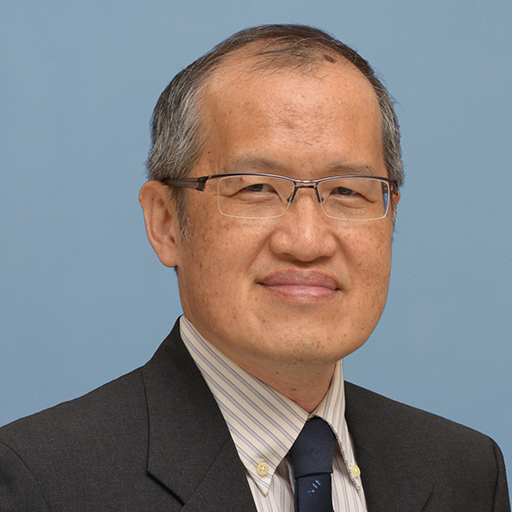 Yew-Jin Lee
Yew-Jin Lee
Associate Professor, National Institute of Education,
Nanyang Technological University, Singapore
Yew-Jin Lee is Associate Professor at the NIE, NTU Singapore. Trained as a high-school biology teacher, he is now a science teacher educator with wide-ranging interests in curriculum studies, disciplinarity, discourse analysis, classroom assessment, and the application of theories of learning in research. His doctoral research with Wolff-Michael Roth examined learning in science-rich workplaces in Canada from the perspective of cultural-historical activity theory. Yew-Jin has served on the editorial board in a number of international journals (e.g., Studies in Science Education, Cultural Studies in Science Education, Research in Science Education, Pedagogies: An International Journal) and was also a former recipient of a Fulbright award to study urban science education at the City University of New York. Currently, he is a member of the science expert group planning for OECD PISA 2025.
Keynote Presentation by Yew-Jin Lee
Does Science Education need (more) Powerful Knowledge?
This presentation examines a recent major curriculum initiative from the UK to restore the role of knowledge as an entitlement, personal fulfilment, and human right for all learners—Powerful Knowledge (PK). The latter emphasises learning of specialised concepts as well as knowledge-building from the disciplines that are typically found within school subjects, but are largely absent from everyday experiences. I share my thoughts regarding areas where science educators may find resonance with PK ideas, and where our largely divergent trajectories will also continue their separate ways.
